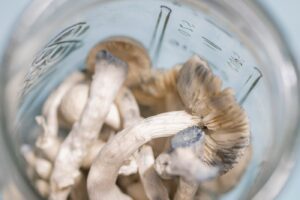Cannabinoids represent the most commonly used psychoactive substance worldwide, and rates of use have increased with the expanding legalization of products containing delta-tetra-hydrocannabinol (THC) and cannabidiol (CBD) for medicinal and recreational use. These 2 compounds are the most frequently studied and well-known of the 104 cannabinoids that have been identified in the cannabis plant.1
Research has shown promise for the benefits of cannabinoids in alleviating symptoms of various conditions including chronic pain and multiple sclerosis, as well as side effects related to chemotherapy.1,2 Additionally, accumulating evidence points to the potential utility of cannabinoids in the treatment of sleep disorders, although much research is still needed in this emerging area.
Cannabinoids and Sleep
Continue Reading
In an article published in Sleep Medicine Reviews, Suraev et al conducted a systematic analysis of 12 clinical studies and 14 preclinical studies investigating the use of cannabinoids in the management of sleep disorders.3 They concluded that while the existing data are insufficient to support the routine clinical use of cannabinoids for this purpose, preliminary “evidence provides the rationale for future [randomized] controlled trials of cannabinoid therapies in individuals with sleep apnea, insomnia, post-traumatic stress disorder-related nightmares, restless legs syndrome, rapid eye movement sleep [behavior] disorder, and narcolepsy.”
The impact of cannabinoids on insomnia (and certain other conditions such as PTSD), which may stem at least partly from their anxiolytic effects, appears to be dose-dependent. Some findings show decreased sleep latency after midrange doses of CBD and increased sleep latency after higher doses.1
Impact on Pain and Insomnia
An earlier study of patients with fibromyalgia demonstrated the superiority of synthetic THC (nabilone) compared to amitriptyline on sleep in patients with fibromyalgia, although it is unknown whether this was attributable to the effect of nabilone on sleep quality or pain control.1,4
Several randomized controlled trials are currently exploring the effects of cannabinoid products in patients with chronic insomnia, including the proof-of-concept CANSLEEP (cannabidiol and Δ9-tetrahydrocannabinol for chronic insomnia disorder) trial investigating the safety and efficacy of a combined THC-CBD product in this population.1,5
Effect in PTSD and Sleep Apnea
In several studies of patients with PTSD, nabilone has been found to improve insomnia and sleep quality, reduce nightmare frequency and intensity, and decrease the frequency of daytime flashbacks, with some patients reporting minor side effects including dizziness and headache.1
In sleep apnea research, interest is increasing “in the use of cannabinoids primarily due to their neuromodulatory effect on the vagal nerve ganglion,” with small studies demonstrating promising results, wrote Kaul et al in a systematic review published in Neurotherapeutics.1 Cannabinoids were found to suppress apneas in studies with rodents, albeit with reduced sleep efficiency and REM sleep.
According to preliminary results of the Phase 2 PACE (Pharmacotherapy of Apnea by Cannabimimetic Enhancement) trial, dronabinol (a synthetic form of THC) led to a greater reduction in the apnea-hypopnea index and improvement in self-reported sleepiness compared with placebo in individuals with obstructive sleep apnea (OSA).6
Eye on the Future
Experts emphasize the need for larger well-controlled, long-term trials to fully elucidate the efficacy and safety profile of cannabinoids in the treatment of sleep disorders.3 In addition, despite the possible benefits of cannabinoids, it is important to note that “chronic cannabis use can be associated with habituation ultimately requiring increased usage for similar effects [and] abrupt withdrawal can yield relapse of symptoms,” wrote Kaul et al.1
Sleep disruptive effects may also result from discontinuation of cannabinoids after chronic use, underscoring the nuanced balance of factors to be considered as this area of research advances.7
To learn more about the potential role of cannabinoids in the management of sleep disorders, we interviewed Aleksandra M. Kwasnik, MD, a physician in the department of pulmonary, critical care and sleep medicine at Billings Clinic in Montana, who co-authored a recent review on the topic that was published in Current Pulmonology Reports.8
What does the evidence suggest thus far about the effects of cannabinoids on sleep?
The evidence available thus far shows some promise for future use of cannabinoid compounds for primary or adjunctive treatment of sleep disorders, such as sleep-disordered breathing, insomnia, and restless legs syndrome. I do caution that the research for this particular indication is in its infancy, and it remains difficult to generalize available data.
For example, the PACE trial, which evaluated the use of the synthetic cannabinoid dronabinol in the treatment of OSA, was conducted as a phase 2 trial and may soon be expanded to include more efficacy data.6 Other research, such as that using natural cannabis products for restless legs syndrome, consists of case reports.
What are believed to be the mechanisms driving these effects?
The mechanisms by which cannabinoid products may influence sleep disorders are not entirely understood, and they likely vary widely. Importantly, the endocannabinoid receptor system on which cannabinoids exert their activity is present throughout the human body in a variety of organ systems, including the central nervous system and immune system.
Additionally, there appears to be crosstalk between the endocannabinoid system and other cellular pathways such as the orexigenic system, which plays an important part in sleep-wake disorders such as narcolepsy.
Finally, it is important to consider that there are over 100 naturally occurring cannabinoids in the cannabis plant as well as numerous synthetic compounds in its family. That in itself can lead to an extraordinary number of possible effects, depending on molecule-receptor interaction.
What are the implications for the use of cannabinoids in the management of sleep disorders?
Sleep medicine is very complex with a variable interplay of neurologic, respiratory, psychiatric, and social factors. Cannabinoids may certainly have an effect on 1 or more of these systems in any individual.
What additional research and other developments are needed in this area?
While much remains to be determined in this field, clinicians no longer have the luxury of ignoring the general public’s interest in cannabis and its potential therapeutic effects. While maintaining an open mind with our patients, it is also important to note limitations – for example, many older studies used strains of cannabis and cannabinoid compounds that differ greatly from those found in modern products.
The perception of cannabis products being natural and therefore safer than other pharmaceutical agents used for treating sleep disorders can lead to potential harm because any agent has risks when used inappropriately.
It is unlikely that dramatic scientific advances can be made while cannabis retains its schedule I designation by the US Drug Enforcement Agency. While cannabis is increasingly used for both recreational as well as self-medicinal purposes, clinical use remains underdeveloped and relies more on patient experiences in a trial-and-error fashion than on the evidence base with which most clinicians are accustomed.
References
1. Kaul M, Zee PC, Sahni AS. Effects of cannabinoids on sleep and their therapeutic potential for sleep disorders. Neurotherapeutics. Published online February 12, 2021. doi:10.1007/s13311-021-01013-w
2. Allan GM, Finley CR, Ton J, et al. Systematic review of systematic reviews for medical cannabinoids: pain, nausea and vomiting, spasticity, and harms. Can Fam Physician. 2018;64(2):e78-e94.
3. Suraev AS, Marshall NS, Vandrey R, et al. Cannabinoid therapies in the management of sleep disorders: a systematic review of preclinical and clinical studies. Sleep Med Rev. 2020;53:101339. doi:10.1016/j.smrv.2020.101339
4. Ware MA, Fitzcharles MA, Joseph L, Shir Y. The effects of nabilone on sleep in fibromyalgia: results of a randomized controlled trial. Anesth Analg. 2010;110(2):604-610. doi:10.1213/ANE.0b013e3181c76f70
5. Suraev A, Grunstein RR, Marshall NS, et al. Cannabidiol (CBD) and Δ9-tetrahydrocannabinol (THC) for chronic insomnia disorder (‘CANSLEEP’ trial): protocol for a randomised, placebo-controlled, double-blinded, proof-of-concept trial. BMJ Open. 2020;10(5):e034421. doi:10.1136/bmjopen-2019-034421
6. Carley DW, Prasad B, Reid KJ, et al. Pharmacotherapy of Apnea by Cannabimimetic Enhancement, the PACE Clinical Trial: effects of dronabinol in obstructive sleep apnea. Sleep. 2018;41(1):zsx184. doi:10.1093/sleep/zsx184
7. Kesner AJ, Lovinger DM. Cannabinoids, endocannabinoids and sleep. Front Mol Neurosci. 2020;13:125. doi:10.3389/fnmol.2020.00125
8. Kwasnik A, Abreu A, Chediak A. Cannabinoids and sleep: helpful or harmful? Curr Pulmonol Rep. 2020;9:96-101. doi:10.1007/s13665-020-00254-y
This article originally appeared on Neurology Advisor





